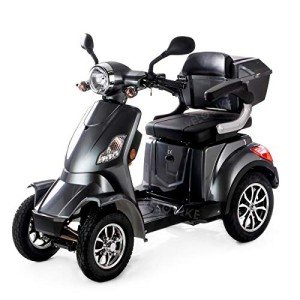
mobility_scooters_for_sale2352
About mobility_scooters_for_sale2352
12 Companies That Are Leading The Way In Mobility Scooters UK
Navigating the World of Mobility Scooters in the UK
Mobility scooters have actually become a necessary tool for numerous in the United Kingdom, offering a useful and dignified solution for individuals with mobility issues. These scooters not only improve the quality of life for their users however also provide a sense of independence and freedom. This comprehensive guide aims to offer an introduction of mobility scooters in the UK, including their benefits, types, buying factors to consider, and upkeep ideas.
Intro to Mobility Scooters
A mobility scooter is a battery-powered automobile developed to help people with strolling problems or minimal mobility to walk around more easily. Unlike manual wheelchairs, which require substantial physical effort, mobility scooters are easy to operate and can be used both indoors and outdoors. They are particularly helpful for older grownups and people with impairments, permitting them to travel longer distances and navigate various terrains with ease.

Advantages of Mobility Scooters
-
Self-reliance and Freedom
- Mobility scooters empower users to take a trip individually, minimizing the requirement for assistance from others.
- They can be used for daily activities such as shopping, visiting buddies, or participating in social occasions.
-
Affordable
- While there are initial costs, mobility scooters can be an affordable alternative to other mobility help, particularly gradually.
- Lots of models are offered for lease or lease, offering flexibility for users with varying requirements.
-
Comfort and Safety
- Scooters are developed with ergonomic seats and adjustable functions to guarantee convenience throughout extended periods of use.
- Security features such as lights, horns, and braking systems improve user confidence and security.
-
Social Inclusion
- By making it possible for individuals to take part in neighborhood activities, mobility scooters promote social addition and lower sensations of seclusion.
-
Health Benefits
- Routine usage of a mobility scooter can assist keep physical health by encouraging users to stay active and engaged.
Kinds Of Mobility Scooters
Mobility scooters in the UK come in different types, each designed to deal with various requirements and choices:
-
Class 2 Scooters (Pavement Scooters)
- Speed: Up to 4 miles per hour
- Usage: Designed for usage on pavements and within indoor areas
- Advantages: Compact and lightweight, perfect for brief distances and everyday errands
-
Class 3 Scooters (Road and Pavement Scooters)
- Speed: Up to 8 miles per hour on roads and 4 mph on pavements
- Use: Suitable for longer journeys and can be used on both roadways and pavements
- Advantages: More robust and efficient in handling different terrains, consisting of rough surface areas and inclines
-
Off-Road Scooters
- Speed: Varies, however usually greater than Class 2 and Class 3 scooters
- Use: Designed for off-road use, including parks, routes, and irregular surfaces
- Benefits: Enhanced durability and traction, ideal for daring users
-
Travel Mobility Scooters
- Speed: Varies, but generally as much as 4 mph
- Usage: Portable and easy to dismantle for transport
- Benefits: Perfect for users who take a trip regularly and need a portable option
Getting Considerations
When buying a mobility scooter, several elements should be considered to make sure the best suitable for the user’s requirements:
-
User’s Physical Condition
- Weight Capacity: Ensure the scooter can support the user’s weight.
- Height and Reach: Choose a model that is adjustable to fit the user’s height and reach comfortably.
-
Intended Use
- Indoor/Outdoor: Determine if the scooter will be utilized mainly inside your home, outdoors, or both.
- Surface: Consider the kind of terrain the user will navigate, including any hills or rough surfaces.
-
Battery Life and Range
- Battery Type: Lithium-ion batteries are generally more effective and longer-lasting than lead-acid batteries.
- Range: Check the scooter’s variety to ensure it satisfies the user’s daily travel needs.
-
Security Features
- Brakes: Look for scooters with reputable braking systems.
- Lights and Horns: Essential for visibility and notifying others.
-
Service Warranty and Customer Support
- Warranty: Ensure the scooter includes a thorough warranty.
- Consumer Support: Choose a reputable producer with good customer support and assistance.
Maintenance and Safety Tips
Correct upkeep is important to guarantee the longevity and safety of a mobility scooter:
-
Regular Battery Checks
- Charging: Always keep the battery credited prevent deep discharge.
- Cleaning: Keep the battery compartment tidy and free from dirt and wetness.
-
Tire Maintenance
- Inflation: Regularly check and keep appropriate tire pressure.
- Examination: Inspect tires for wear and damage, replacing them as required.
-
Clean and Lubricate
- Cleansing: Wipe down the scooter routinely to keep it complimentary from dirt and grime.
- Lubrication: Lubricate moving parts to prevent rust and ensure smooth operation.
-
Security Checks
- Brakes: Test the brakes frequently to guarantee they are functioning properly.
- Lights and Horns: Check that all safety functions are functional.
-
Follow Manufacturer Guidelines
- Handbook: Refer to the user manual for particular upkeep instructions.
- Service: Schedule routine service consult a qualified technician.
Regularly Asked Questions (FAQs)
-
Can anybody use a mobility scooter?
- No, just people with a medical need or disability are eligible to use a mobility scooter on public roadways and pavements in the UK. Nevertheless, they can be used by anyone on personal property.
-
Do I require a license to drive a mobility scooter?
- No, a license is not required to use a Class 2 or Class 3 mobility scooter. Nevertheless, users must be over 14 years old and have a real need for the scooter due to a disability or medical condition.
-
How quickly can a mobility scooter go?
- Class 2 scooters have an optimal speed of 4 miles per hour, while Class 3 scooters can rise to 8 miles per hour on roadways and 4 mph on pavements.
-
Can I take a mobility scooter on public transport?
- Some public transportation, such as trains and buses, may allow mobility scooters, however it depends upon the particular service and the size of the scooter. It’s best to consult the transportation service provider ahead of time.
-
What is the lifespan of a mobility scooter?
- With proper upkeep, a mobility scooter can last several years, generally in between 5 and 10 years.
-
Can I get monetary support to buy a mobility scooter?

- Yes, financial help might be available through the Disabled Facilities Grant (DFG), regional authorities, or charitable organizations. In addition, some insurance providers may cover part of the cost.
Mobility scooters are an important aid for individuals with mobility problems in the UK, offering a variety of take advantage of increased self-reliance to improved social participation. By thinking about the user’s needs, the designated usage, and the scooter’s features, one can choose the ideal design to enhance their lifestyle. Regular upkeep and adherence to safety guidelines are necessary to ensure the scooter remains a trusted and safe mode of transport. For those who certify, financial assistance might be available to make the purchase more budget friendly. Whether for everyday usage or periodic outings, a mobility scooter can substantially improve the user’s ability to browse the world with confidence and ease.
Extra Resources
- Mobility Aids UK: A thorough directory of mobility aids and scooters.
- NHS Choices: Information on mobility aids and financial assistance.
- Disability Living Allowance (DLA): Guidance on making an application for financial backing for disability-related costs.
By checking out these resources and thinking about the points described in this guide, people can make an educated choice about purchasing and utilizing a mobility scooter in the UK.
No listing found.